
The death of novelist and essayist Martin Amis on 19 May triggered a ‘mainstream’ wave, not just of admiration, but of adoration. It is clear from the obituaries that Amis died with his reputation intact and untarnished.
In tweeting a link to his obituary for the Guardian, the Independent’s former literary editor Boyd Tonkin captured the essence of the response:
‘I had hoped so much that this would not see the light of day for a very, very long time. But sadly here it is. My obituary of #MartinAmis’
The Guardian’s chief books writer, Lisa Allardice, wrote of Amis:
‘For a time, he seemed happy to fill the role of novelist as public intellectual. He riffed elegantly on everything from the porn industry to the Royal family.’
Perhaps not everything. Allardice noted that Amis was a public intellectual with a particular focus:
‘In his crusade for fine writing and his declaration of war on cliché, Amis made everyone up their game.’
Amis reported from the front line of this ‘war against cliché’:
‘You know, whenever you write, “The heat was stifling”, or, “She rummaged in her handbag”, this is dead freight, you know. And by the way, the war is extended onto another sphere. People who use these mouldering novelties like, “Seen it, done it, got the T-shirt”, “He went ballistic!”, “I don’t think so. Hello!” – all that. These are dead words. They’re herd words. What cliché is, is herd writing, herd thinking and herd feeling.’
Amis was psychologically astute and he was fiercely opposed to herdthink. How remarkable, then, that in 2007 – in the wake of 9/11 and the London, 2005, 7/7 bombings – the same writer declared:
‘The extremists for now have the monopoly of violence, intimidation, and self-righteousness.’
Edward Herman, co-author with Noam Chomsky of Manufacturing Consent, responded:
‘Bush, Blair, Olmert and their gangs are clearly not the “extremists” Amis has in mind—Bush and friends are the “self-defense” folks just striving for a wee bit of security and human rights, and fighting off the invasions of their territory by the Islamo-fascists. The pitiful giant, with 50 percent of the arms budget of the earth, invading or bombing at least three countries right now, is being overwhelmed by the violent folks, “for now.”’ (Edward Herman, ‘“Look forward, not back,” and other Clichés, Idiocies, and Abused Words’, Z Magazine, April 2009)
Indeed, much as he might have deplored references to women rummaging in handbags, Amis was here delivering power-friendly ‘herd words’ based on ‘herd thinking and herd feeling’.
Or consider Amis’s comments in 2008, arguing ‘Against the motion that America has lost [sic] its moral authority’:
‘All countries want first of all to be respected. But America’s defining anomaly is that it wants to be loved. Let’s call to mind an immortal and terrible irony, as the US army entered Iraq what was it expecting? It was expecting to be met with sweets and flowers and dancing in the city squares.’
This is so far from the reality of what US power is and works to achieve, it almost defies comment. Amis added:
‘I ask you not to endorse this reflexive, directionless and sterile hatred of the hegemon. The present administration is coming to an end and we may reasonably hope that the new president will be sharply attentive to what has been so blithely neglected. While it’s true that good intentions can be terrifying enough, they are on average decisively better than bad intentions.’ (‘The Great Debaters’, The Independent, 1 May 2008)
Certainly, ‘the new president’, Barack Obama, was ‘sharply attentive’ to Muslim countries that required fresh or repeat bombing, attacking fully seven of them in eight years, leaving Libya in ruins. Clearly, ‘America’ just ‘wants to be loved’.
Was Amis, here, waging war on the deadly clichés that facilitate mass killing by obscuring the goals and violence of Great Power? We don’t think so. Hello!
In his autobiographical novel, Inside Story, Amis recounted (or paraphrased, or invented) a discussion with his close friend Christopher Hitchens about Gore Vidal, Noam Chomsky and terrorism. Hitchens says:
‘If a conspiracy theory traduces America, then Gore’ll subscribe to it. With Gore it’s just a fatuous posture. With Noam, I’m sorry to say, it’s heartfelt. He just doesn’t like America.’ (Amis, Inside Story, Vintage, 2020, e-book, p.133)
The work of Vidal and Chomsky – two of the most astute, honest and courageous analysts exposing political mendacity – is thus dismissed as conspiracy theorising: a bizarre quirk in Vidal, but a key function of irrational hatred in Chomsky.
Amis’s reply:
‘… Well keep it up, Hitch. You’re the only lefty who’s shown any mettle. It’s your armed-forces blood – the blood of the Royal Navy. And you love America.’
In October 2015, The Times reported Amis’s prediction that Labour under Corbyn would become ‘hopelessly retrograde, self-absorbed, self-pitying and self-righteous, quite unembarrassed by its (years-long) tantrum, necessarily and increasingly hostile to democracy and, in any sane view, undeserving of a single vote’.
To the extent that this made sense at all, it was elite, truth-reversing herdthink rejecting Britain’s sole chance in a generation (or longer) of electing a leader who might offer hope of an authentically compassionate politics opposing war, inequality and the destruction of the environment. Again, the unthinking conformity of someone waging a ‘war against cliché’ is astonishing.
Amis attacked Corbyn’s views on terrorism, saying his comparisons between western troops and ‘the glitteringly murderous theists of Islamic State’ are an example of the ‘dismally reflexive mental habit of seeking tinkertoy moral “equivalence” at every opportunity’.
As we discussed in a recent media alert, the ‘mainstream’ focus on ‘moral equivalence’ is a constant theme of ‘mainstream’ herdthink.
‘Some Societies Are Just More Evolved Than Others’
Try to imagine the intensity of the response if Jeremy Corbyn, or some other high-profile leftist, said this of the latest brutal example of ethnic cleansing of Palestinians by the apartheid Israeli state:
‘What can we do to raise the price of them doing this? There’s a definite urge – don’t you have it? – to say, “The Jewish community will have to suffer until it gets its house in order.” What sort of suffering? Not letting them travel. Deportation – further down the road. Curtailing of freedoms. Strip-searching people… Discriminatory stuff, until it hurts the whole community and they start getting tough with their children.’
As we all know, the political and media class would rise up in an eruption of blistering outrage at this call for the collective punishment, not just of Israelis, not just of the entire Jewish community, but of Jewish children? Such comments would rightly be denounced as obscene, instantly becoming a national and global scandal. And no matter how much Corbyn might subsequently back-track or apologise, his words would never be forgotten; they would be relentlessly cited as the principal reason why he should never be taken seriously, engaged with, or even mentioned, again.
In a September 2006 interview on terrorism with Ginny Dougary, Amis said:
‘What can we do to raise the price of them doing this? There’s a definite urge – don’t you have it? – to say, “The Muslim community will have to suffer until it gets its house in order.” What sort of suffering? Not letting them travel. Deportation – further down the road. Curtailing of freedoms. Strip-searching people who look like they’re from the Middle East or from Pakistan… Discriminatory stuff, until it hurts the whole community and they start getting tough with their children.’
The New York Times’ Amis obituary makes no mention of this shocking public statement, noting merely:
‘In 2008, Mr. Amis published “The Second Plane,” a collection of 12 pieces of nonfiction and two short stories about the Western world and terror. “Are you an Islamophobe?” he was asked by the British newspaper The Independent while he was writing the book.
‘“Of course not,” he replied. “What I am is an Islamismophobe. Or better say an anti-Islamist, because a ‘phobia’ is an irrational fear, and there is nothing irrational about fearing people who say they want to kill you.”’
But what is an ‘Islamismophobe’? In 2007, satirist and filmmaker Chris Morris commented in the Guardian:
‘Even Hitchens concedes Amis wrongly conflates Islamism with Islam. By fudging, Amis adds the weight of his reaction against terrorism to his contempt for Muslims in general. Take “Islamism”. What does it actually mean?’
In his Guardian obituary, Boyd Tonkin wrote:
‘Rash interview statements prompted charges of Islamophobia. More soberly, Inside Story concludes that “the real danger of terrorism lies not in what it inflicts but what it provokes”. Still, the op-ed pundit Amis could drop his verbal, even moral, compass.’
‘Rash’ statements? Did Amis merely ‘drop’ his moral compass from time to time? Compared to the grim fate that would have awaited Corbyn, or any other high-profile left commentator in our imaginary scenario, this was the tiniest slap on Amis’s reputational wrist.
In similar vein, Lisa Allardice commented in the Guardian:
‘Amis the dazzling young stylist looked in danger of being overshadowed by Amis the grumpy old controversialist, with ill-judged comments on Islamism and euthanasia.’
Again, ‘ill-judged’? ‘Grumpy’? And that was it – no details were supplied.
Brief mention of the controversy was buried half-way through an Observer piece by Sarah Shaffi:
‘Amis was accused of Islamophobia following a 2006 interview with Ginny Dougary in which he said “there’s a definite urge… to say, ‘the Muslim community will have to suffer until it gets its house in order’”. Talking to the Guardian in 2020 he said he “certainly regretted having said what I said; already by mid-afternoon on that day I ceased to believe in what I said”.’
But Amis’s hostility to ‘Islamism’ was more than a passing phase. In the same interview with Ginny Dougary, he said:
‘It’s a very chilling thought because the only thing the Islamists like about modernity is modern weapons. And they’re going to get better and better at that. They’re also gaining on us demographically at a huge rate. A quarter of humanity now and by 2025 they’ll be a third. Italy’s down to 1.1 child per woman. We’re just going to be outnumbered.’
He commented elsewhere:
‘The impulse towards rational inquiry is by now very weak in the rank and file of the Muslim male.’
At the Cheltenham Literature Festival in 2007, Amis said Muslim states were less ‘civilised’ than western society: ‘Some societies are just more evolved than others.’
He added: ‘There is no inoffensive way to put this. By evolved, I mean more civilised. We have more respect for civil society.’
A year earlier, Amis had asserted that Iran, ‘our natural enemy,’ would be willing to accept a nuclear attack in order to realise its dark dreams: ‘They feel they can absorb this hit and destroy Israel.’ (Amis, This Week, 12 October 2006)
In fact, Iran had no nuclear weapons and, according to US intelligence agencies in 2007, ‘had halted its nuclear weapons programme’ in 2003. But anyway, to suggest that Iran was so fanatical that it would be willing to accept millions of deaths was deeply dehumanising.
The Telegraph obituary commented only that academic Terry Eagleton ‘had accused Amis of racism after an interview in which he floated the idea of deporting Muslims (a suggestion Amis later dismissed as “stupid”).’
The obituary added:
‘… he was accused variously of misogyny, Islamophobia, ageism, naked greed, nepotism, professional betrayal, dwarfism, extravagant dentistry, and being a neglectful godfather’.
Amis was accused of everything, then – Islamophobia was just one issue among many.
The Mail on Sunday observed that Amis had been ‘Accused of Islamophobia or hating Muslims in the aftermath of the 9/11 terrorist attacks’ while offering his defence – that he was against “Islamism”, not Muslims.‘ No details were given.
In their pieces for the Observer, columnist Martha Gill and author Geoff Dyer made no mention of the controversy at all.
‘How Death Outlives War’ – The Brown University Report
Light is shed on the moral significance of Amis’s fleeting sense that ‘The Muslim community will have to suffer until it gets its house in order’, and on the ‘mainstream’ media’s near-complete indifference to these comments, by a new Brown University report drawing on UN data and expert analyses.
On May 15, the Washington Post described how the report, ‘How Death Outlives War: The Reverberating Impact of the Post-9/11 Wars on Human Health’, has attempted ‘to calculate the minimum number of excess deaths attributable to the war on terrorism, across conflicts in Afghanistan, Pakistan, Iraq, Syria, Libya, Somalia and Yemen’.
The Post commented:
‘The accounting, so far as it can be measured, puts the toll at 4.5 million to 4.6 million — a figure that continues to mount as the effects of conflict reverberate. Of those fatalities, the report estimates, some 3.6 million to 3.7 million were “indirect deaths” caused by the deterioration of economic, environmental, psychological and health conditions.’
The report makes clear that these figures are conservative and constantly rising:
‘Some of these people were killed in the fighting, but far more, especially children, have been killed by the reverberating effects of war, such as the spread of disease. These latter indirect deaths – estimated at 3.6-3.7 million – and related health problems have resulted from the post-9/11 wars’ destruction of economies, public services, and the environment. Indirect deaths grow in scale over time. Though in 2021 the United States withdrew military forces from Afghanistan, officially ending a war that began with its invasion 20 years prior, today Afghans are suffering and dying from war-related causes at higher rates than ever.’
A 2018 survey of Syrian, Afghan, and Iraqi refugees ‘showed that more than 60% were traumatized by war experiences, including attacks by military forces, coping with the murder or disappearance of relatives, living through torture and solitary confinement, and witnessing murders, abuse, and sexual violence. More than 6% had been raped’.
The children, a particular focus of Amis’s fleeting ‘urge’, have faced unimaginable suffering. The report calculates that more than 7.6 million children under five are suffering from acute malnutrition, or wasting, in Afghanistan, Iraq, Syria, Yemen, and Somalia:
‘“Wasting” means, simply, not getting enough food, literally wasting to skin and bones, putting these children at greater risk of death, including from infections that result from their weakened immune systems.’
A 2014 survey showed that four out of ten school children (under age 16) in Mosul, Iraq had mental health disorders such as post-traumatic stress disorder. There are numerous other shocking insights, consistently ignored by British corporate media, on the US-UK devastation of Iraq:
‘The UN economic sanctions of the 1990s caused many health providers to leave Iraq, and in the five years following the U.S. invasion in 2003, an estimated 18,000 doctors – over half those remaining at the time – fled the country. In December 2011, when U.S. soldiers officially withdrew, doctors in Baghdad were being killed at a rate of 47.6 per 1,000 professionals per month, and nearly 5,400 doctors were emigrating annually.’
Between 2014 and 2017, various combatants in Iraq destroyed 63 cities and 1,556 villages; the destruction of residential buildings alone generated over 55 million tons of debris.
The suffering abounds:
‘Middle East households headed by widows are particularly impoverished; there are over one million widows in Iraq and two million in Afghanistan.’
As for Nato’s devastation of Libya:
‘Whereas before Libya’s war, the country’s human development index was ranked the highest in Africa, the war disrupted healthcare and closed hospitals across the country. The war years brought about a large decrease in life expectancy (nine years for men and six for women), and infectious diseases such as tuberculosis surged.’
In 2021, 50% of households in Libya relied on bottled water and only 22% had access to safe sanitation.
The icing on this nightmarish cake is the fact that Western corporations got their hands on the oil in Iraq, Libya and Syria.
In 2007, in a vanishingly rare instance of dissent titled, ‘Shame on us’, published by the Guardian, the Irish novelist and screenwriter Ronan Bennett damned the media silence in response to Amis’s comments:
‘Why did writers not start writing? There is Eagleton and there is the Indian novelist and essayist Pankaj Mishra, who took apart Amis’s strange and chaotic essay on the sixth anniversary of 9/11. But where are the others?’
Bennett concluded:
‘Amis got away with it. He got away with as odious an outburst of racist sentiment as any public figure has made in this country for a very long time. Shame on him for saying it, and shame on us for tolerating it.’
Nothing has changed. As another famous novelist, Mark Twain, observed:
‘There are many humorous things in the world; among them, the white man’s notion that he is less savage than the other savages.’ (Twain, Following the Equator – The wit and wisdom of Mark Twain, Dover, 1999, p.4)
This post was originally published on Dissident Voice.
pic.twitter.com/XBnJkNhooi
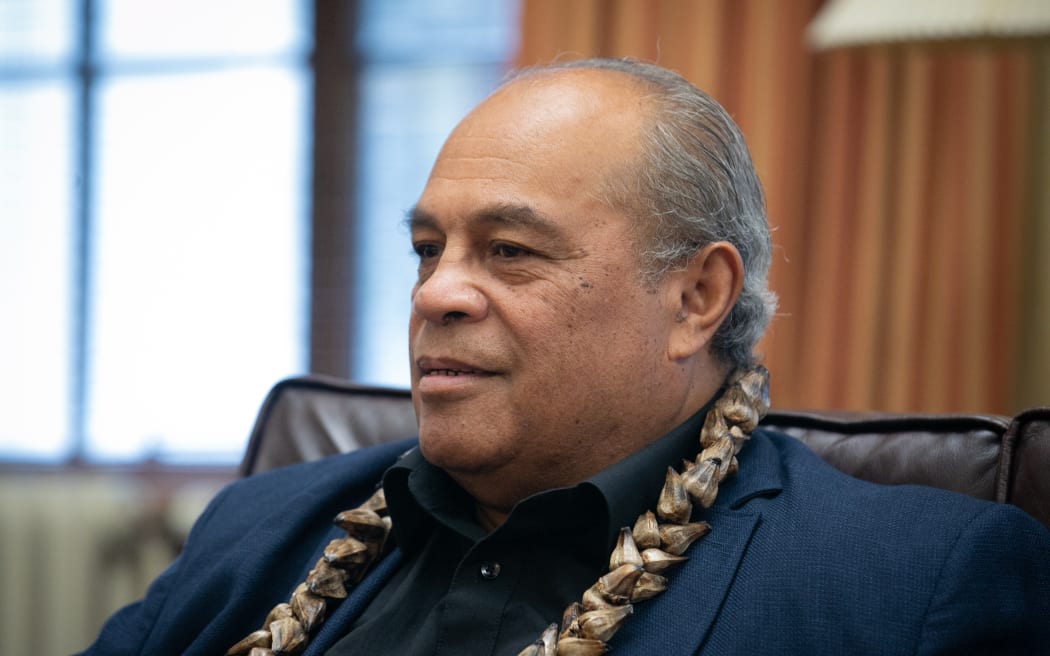


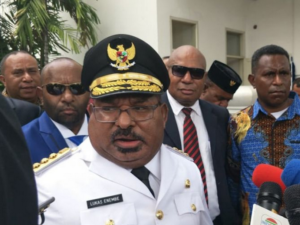



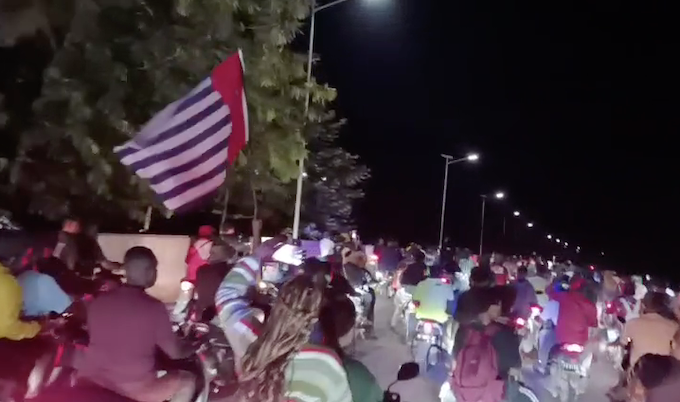

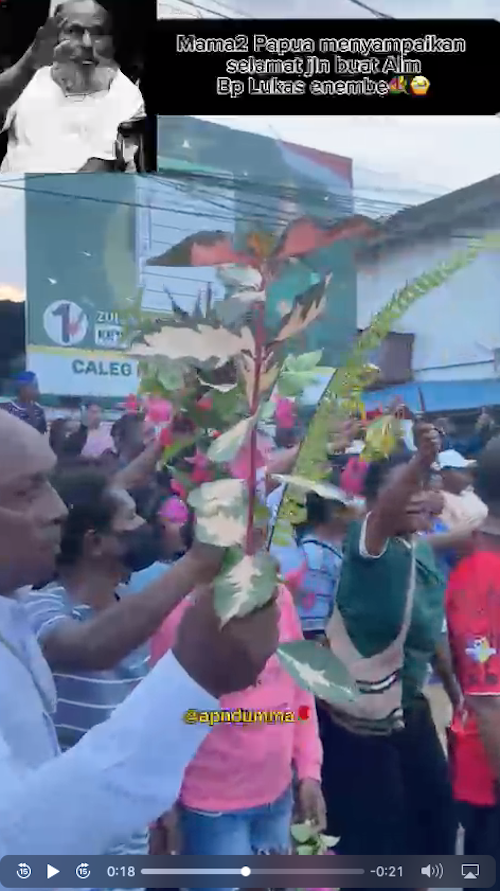
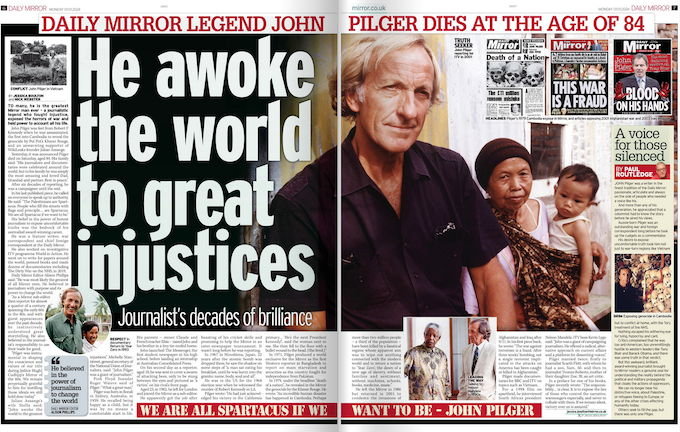


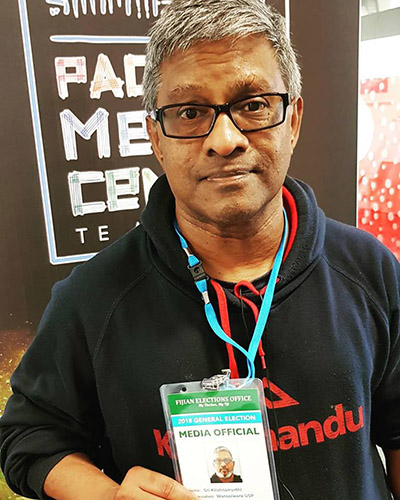
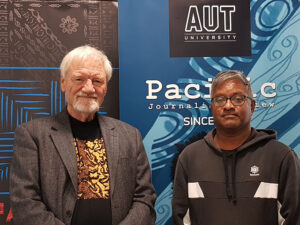
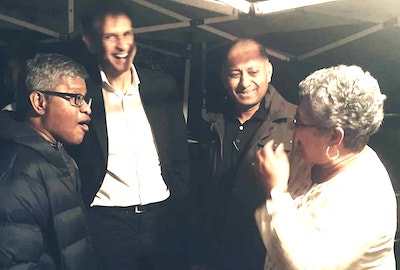
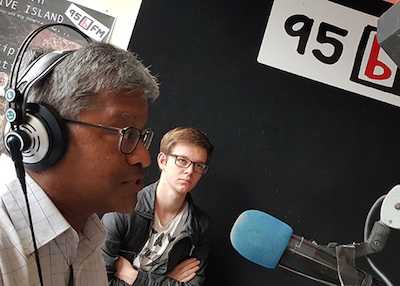
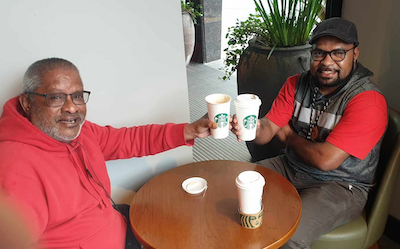

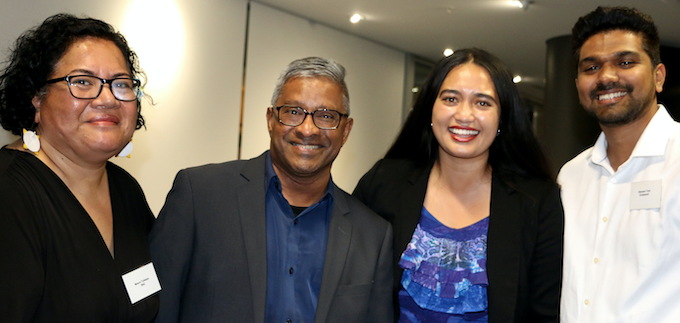


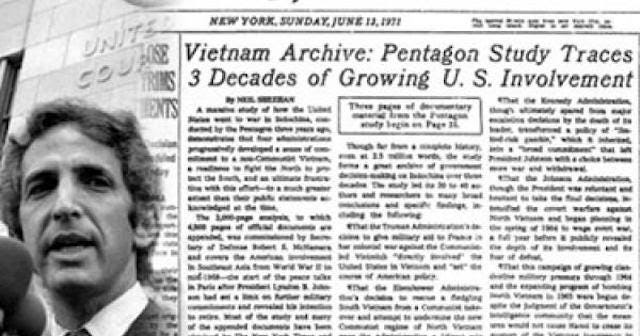


 The 1988 run for the Oval Office began with Robertson’s announcing his endorsement by The Almighty. I asked Volder how Robertson could have lost the Republican primary if God was his campaign manager. But the Lord did not tell Robertson to win, He told Pat to run. And this “losing” race generated a mailing list of three million sullen Americans of the heartland whose rage was given voice by Robertson forming, out of defeat, the Christian Coalition. Volder offers that this may have been, in fact, the Lord’s stratagem: to generate the fearsome lists. The Coalition lists, like the CBN lists, are worth their weight in gold.
The 1988 run for the Oval Office began with Robertson’s announcing his endorsement by The Almighty. I asked Volder how Robertson could have lost the Republican primary if God was his campaign manager. But the Lord did not tell Robertson to win, He told Pat to run. And this “losing” race generated a mailing list of three million sullen Americans of the heartland whose rage was given voice by Robertson forming, out of defeat, the Christian Coalition. Volder offers that this may have been, in fact, the Lord’s stratagem: to generate the fearsome lists. The Coalition lists, like the CBN lists, are worth their weight in gold.

